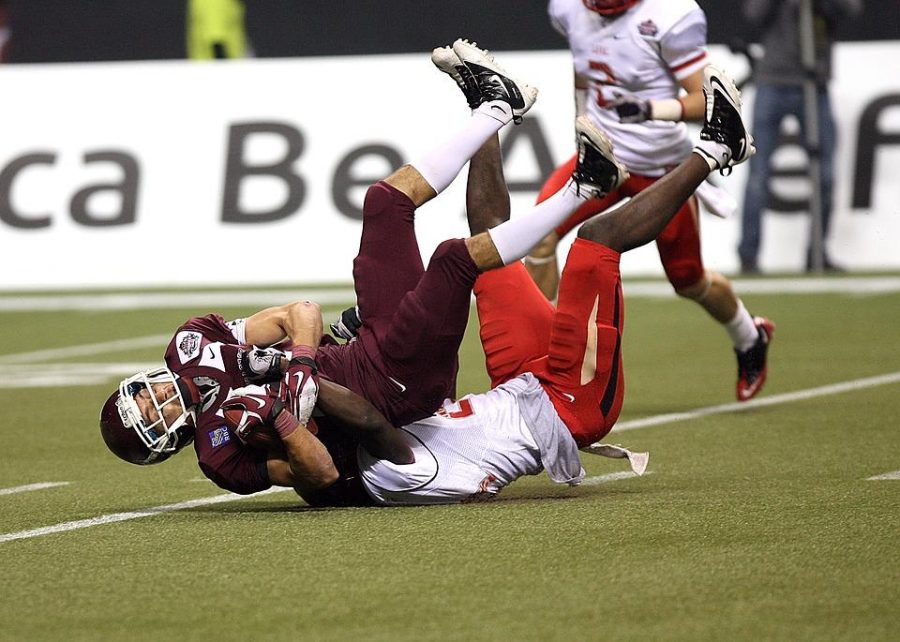The season is new, and there is an exciting atmosphere of students returning to school in the fall. The ambiance at sporting events is energetic and lighthearted. Of course, many people are thrilled for the debut of their favorite competitive sport: football.
Football season is all fun and games for players and fans — until a player is severely injured for the rest of his life. The whole football system is morally problematic. I refer to two of the biggest issues of football’s darker side: the injuries suffered by players on the field and the ignored violence against women in the big leagues.
There is no lack of evidence that football players suffer from multiple instances of brain damage. Efforts to make the safety equipment better are not working. In fact, they make the players feel safe enough to play harder — to hit harder. The speed and power with which football players ram their helmeted heads into other players is sloshing and smashing their brains. This game kills people who play it.
I believe wholeheartedly that people should be allowed to do what they want as long as it does not hurt anyone else. This includes allowing adults to do whatever they wish with their bodies. On the other hand, the world lures young adults into playing dangerous sports for others’ entertainment by offering them extreme wealth. If one 20-year-old says no, there is a line of others who will gladly say yes. Sure, there are many dangerous occupations in the world, but football is arguably only for societal entertainment, similar to the murderous gladiator contests in ancient Rome.
Football players are practically worshipped for what they can do on the field for their teams and fans, but concern for their personal well-being is not often demonstrated in any meaningful way beyond the game.
Not only is football immoral because of the harmful consequences to a player’s health, but it condones domestic violence towards women by turning a blind eye to blows sustained by women at the hand of many NFL players.
This familiar horror consists of an athlete being accused of something terrible, a long and slow investigation, and a lightly punitive punishment, if any. This token process is repetitive and re-victimizing for the survivors of cases against boyfriends and husbands who continue to be enabled because of the NFL’s protection.
In 2014, Ray Rice was seen in a video knocking out his then fiancée Janay Palmer in a casino hotel. He was suspended and the league officials claimed they never saw it beforehand. Yet months earlier, a released video showed Rice dragging Palmer from the elevator and leaving her limp body on the floor. Since apparently the sport is more important than the individuals, Palmer was blamed for being a victim and Ray Rice was admired by his coaches and peers for being a great guy. The problems were brushed over.
There are countless acts of domestic violence in the NFL that are inadequately dealt with. Though the NFL has enforced a baseline six-game suspension for some players, it is rarely enforced. How is that enough of a message to say that we will not tolerate violence toward women from important public figures?
The NFL is in need of male leadership when it comes to setting a firm line against the acceptance of domestic violence against women. The silent group of players who are model husbands and fathers have the power to change the culture in the league. The league just needs to give them a consistent and well implemented platform.
If we, as a moral society, are to continue to enjoy football, then football players deserve to be given their humanity beyond the game. This means that we discourage violent moves on the field that cause long-term brain damage, and we punish violence off the field. We need to hold players to the same standard we would in any other domestic violence situation, offering protection for the women and requiring restitution and counseling for the offender.
letters@chronicle.utah.edu


